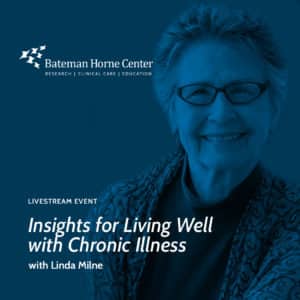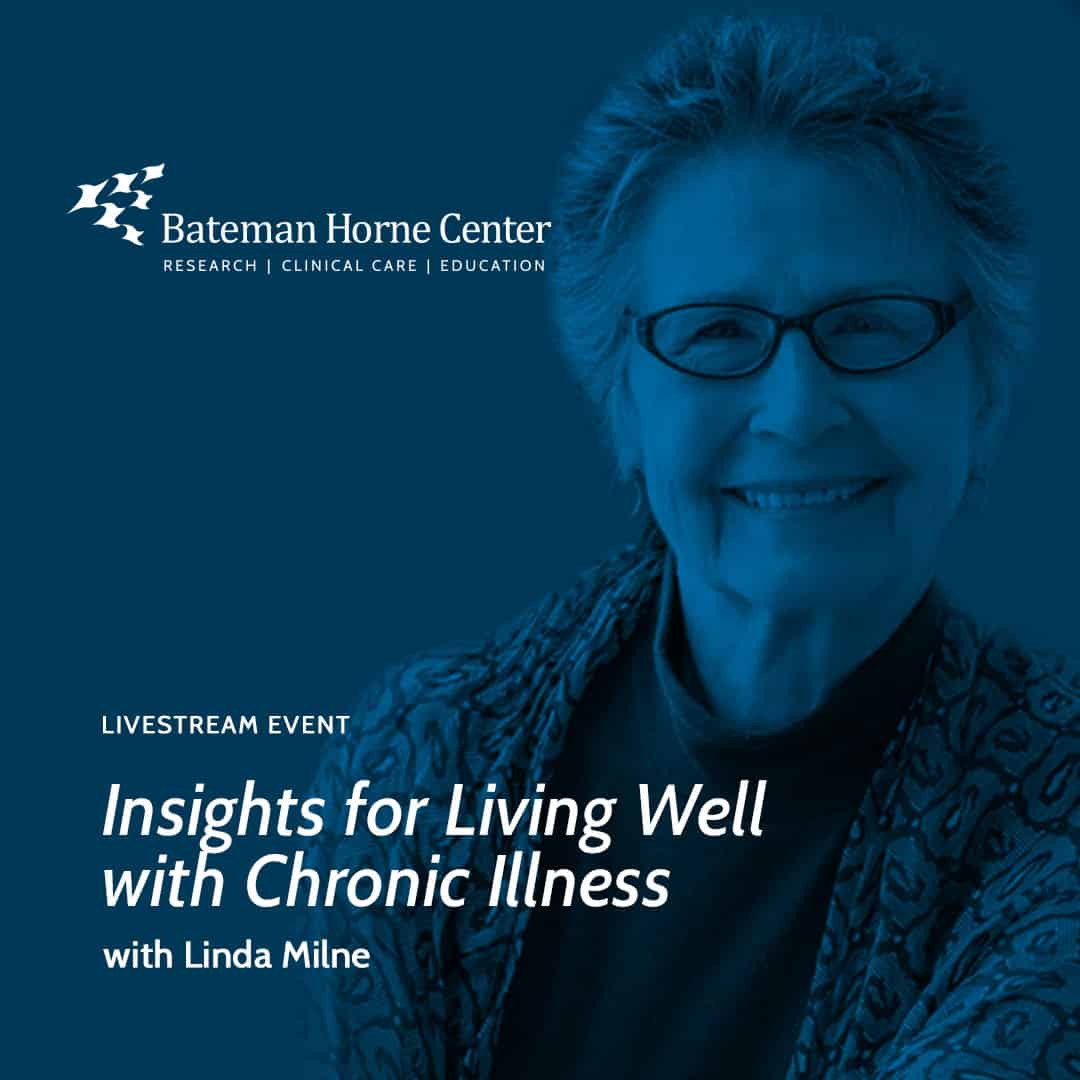
Determine What Quality of Life Means
The phrase, quality of life, held a different meaning to each individual, but everyone agreed that it encompasses having basic needs met, and the ability to act and to feel good about life. These women expressed common desires such as to work full-time, teach, be physically active, enjoy outdoor activities, attend school full-time, travel, and spend more time with family and friends. However, living with a chronic illness meant making choices and finding different ways of experiencing what they love. For example, Linda misses working a busy job in business, but since her illness doesn’t allow her to maintain employment, she pursued her interest in emergency preparedness. Here she finds meaning in sharing her important knowledge in the local and national community. Peggy makes spending time with her grandchildren the top priority. However, they are both careful to ration their energy.
Prioritize Relationships
Given the limiting nature of ME/CFS and FM the panelists agreed that having quality of life boils down to prioritizing relationships and activities that bring meaning. Positive relationships were the primary theme in how panelists experience quality of life. Supportive friends or family can and do make all the difference. This is especially true when those people know and can accommodate your mental, physical and emotional needs in addition to medical needs. It requires that the energy needed to invest in relationships be thoughtfully considered, but those relationships pay dividends in personal wellbeing. These important friends and family allowed panelists to ration precious energy wisely, set safe boundaries with other people and participate in activities that honored each panelists’ unique energy limits for the day. If you are in need of positive relationships, the Bateman Horne Center hosts two free online support groups each month to give patients an opportunity to connect and talk with others who face similar experiences. Loved ones, caregivers and friends are also welcome to participate and often find it helpful to better understand how to be supportive.
Set Boundaries
Our attitudes and the attitudes of those around us impact quality of life. Panelists indicated they were extra sensitive to negativity while in a flare and find it necessary to limit or eliminate interactions with some people during these vulnerable times. Boundary setting is especially important for people with ME/CFS and FM; it is okay to leave or limit relationships with negative people in order to protect yourself. Our personal attitudes, and knowing everyone is personally accountable for their own negativity, helps keep other’s negativity from becoming too painfully personal.
Acknowledge Challenges
Like most people with ME/CFS and FM the panelists encounter challenges in their quest to live a life of quality. For instance, several panelists find it challenging to accept the reality of working at a slower pace and to see the future as desirable. Aging brings additional challenges that may exacerbate or compound the stress of ME/CFS and FM. Yet acceptance, embracing and deliberately reframing attitudes is an important way that panelists manage some of the challenges they face. In addition to the online support groups, BHC volunteers organize a monthly Lunch & Learn in Salt Lake City, Utah, to as an opportunity to meet like-minded people and make supportive friendships.
Establish Helpful Tools
Finally, panelists drew on several assets to help them cope with the stress of a chronic illness. Medical professionals, family, friends and spouses prove to be important social resources. Physical care such as massages when in a flare, exercising as able, house cleaning help, and medication as needed are tools they utilize. Beyond that, internal resources included optimism, religious faith, being realistic, and prioritizing the things that matter most.
Conclusion
Overall, the panelists expressed that building quality of life while living with chronic illness is a challenge but within reach when approached with planning, assets, and uplifting, supportive relationships.
We thank the panelists for their time and for the energy dedicated to sharing their knowledge and experiences. If you would like to support us in our mission to bring supportive, quality healthcare to everyone with FM and ME/CFS, please consider following us on Facebook or donating to our organization today.

 Lucinda Bateman, MD, is a renowned clinician, researcher, and educator. Her Johns Hopkins University Medical School training instilled an approach to care that she has employed throughout her career - the patient comes first and the unknown or unexplained does not equate to a lack of proper and compassionate care. Since starting her own practice in 2000, she has served on six boards or committees, been the principal investigator for 45 studies, authored/coauthored 40 journal articles, served as adjunct instructor and adjunct assistant professor in the University of Utah Departments of Preventative Medicine, Internal Medicine, and Anesthesiology, and lectured around the world.
Lucinda Bateman, MD, is a renowned clinician, researcher, and educator. Her Johns Hopkins University Medical School training instilled an approach to care that she has employed throughout her career - the patient comes first and the unknown or unexplained does not equate to a lack of proper and compassionate care. Since starting her own practice in 2000, she has served on six boards or committees, been the principal investigator for 45 studies, authored/coauthored 40 journal articles, served as adjunct instructor and adjunct assistant professor in the University of Utah Departments of Preventative Medicine, Internal Medicine, and Anesthesiology, and lectured around the world.